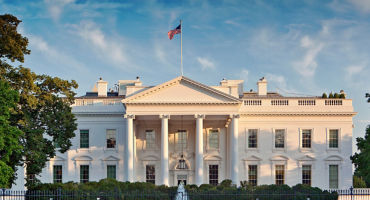US Speaker Nancy Pelosi’s visit to Taiwan in early August precipitated a downward shift in US/China relations to a decades-long low. This friction is now a permanent feature of bilateral relations and will also continue to pressure Beijing’s relations with key US allies in Europe and across the Indo-Pacific. Here, I share my thoughts on the ramifications of the escalating tensions.
An increasingly divided global order
While Speaker Pelosi’s visit sparked a meaningful crisis in US relations with China, a worst-case military scenario has been averted, for now. However, geopolitical and policy risks remain elevated and will continue to reflect the great-power dynamics between the two nations as well as a sharper division of the global order. In this environment, governments will undoubtedly continue to value national security over economic efficiency. This incident is therefore also likely to increase policymakers’ focus on “strategic decoupling” in the industries that are now on the front lines of great-power competition with China (semiconductors, next-generation communications, space-related technologies, robotics/automation, biotechnology, artificial intelligence, and others).
Pelosi’s visit demonstrated the US’s unquestionable military and diplomatic support for Taiwan and its commitment to fellow democracies and allies (in the Indo-Pacific and beyond, given the Russia/Ukraine war), which is a driving force of foreign policy under the Biden administration. Such a high-level visit is also the most visible sign yet of US efforts to support Taiwan, particularly in light of Russia’s invasion of Ukraine and a more rapid fracturing of the world order into a “democracies versus autocracies” narrative.
In addition, the visit exemplified the current US approach to great-power relations, which has accelerated under the Biden administration. This includes ongoing “freedom of navigation” operations in the Taiwan Strait (an area claimed by Beijing), selling additional military arms to Taiwan, and closer trade and diplomatic relations with Taipei. It also extends to ongoing military exercises by the Quad, the AUKUS submarine alliance, a larger military role for Japan (in the East and South China Seas, as well), and other regional actions in support of Taipei. These coordinated actions are all very much about deterrence, and it’s much larger than just US/China relations.
Strong bipartisan support for Taiwan
Importantly — and this point may be lost on Beijing — the separation of powers is a real thing in Washington, DC, even among political allies like President Biden and the Speaker; over the years, Pelosi has been a strong advocate for the role of Congress as it relates to US national security. More broadly, the Russia/Ukraine war has hardened US policymakers’ hawkish direction toward China as well as the bipartisan approach toward institutionalized great-power competition — particularly in a US election year.
Support for Taiwan in Washington remains strong, and the Biden administration and Congress are keen to demonstrate full and public support to Taiwan and to US allies across the region. Notably, 26 Republican senators issued a joint statement backing Pelosi’s trip (significant given the fractured political climate right now), and while a handful of Republican voices remain critical of her actions, there are now more than 50 pieces of legislation on Capitol Hill — in varying stages of completion — that aim to support Taiwan; this is roughly a fourfold increase since the start of the year. Given this strong bipartisan agreement on China’s “near-peer threat” status to the US, these legislative and national security moves are more about policy than politics.
China will undoubtedly continue to respond to the US’s posturing, given the significant domestic political and national security dynamics at play, and a more assertive China will be the “new normal” of cross-strait relations with Taiwan.
Bottom line
Taken together, all the pieces are in place for a US/China crisis over Taiwan and we should remain extremely mindful about these risks, especially in today’s deeply challenged geopolitical environment, where surprises and policy missteps are more likely. We should also expect more reliance on existing regional security arrangements (including the Quad, AUKUS, and a new NATO focus on China), and increasing attention from policymakers to strategic sectors on the front lines of this deepening geopolitical tension.
While the Pelosi visit is a moment of extreme geopolitical tension between the US and China, it represents part of a much-longer trend of institutionalized great-power competition involving more countries than the US and China and reflects shifting market and macro dynamics that will continue long into the future.
Related content





















